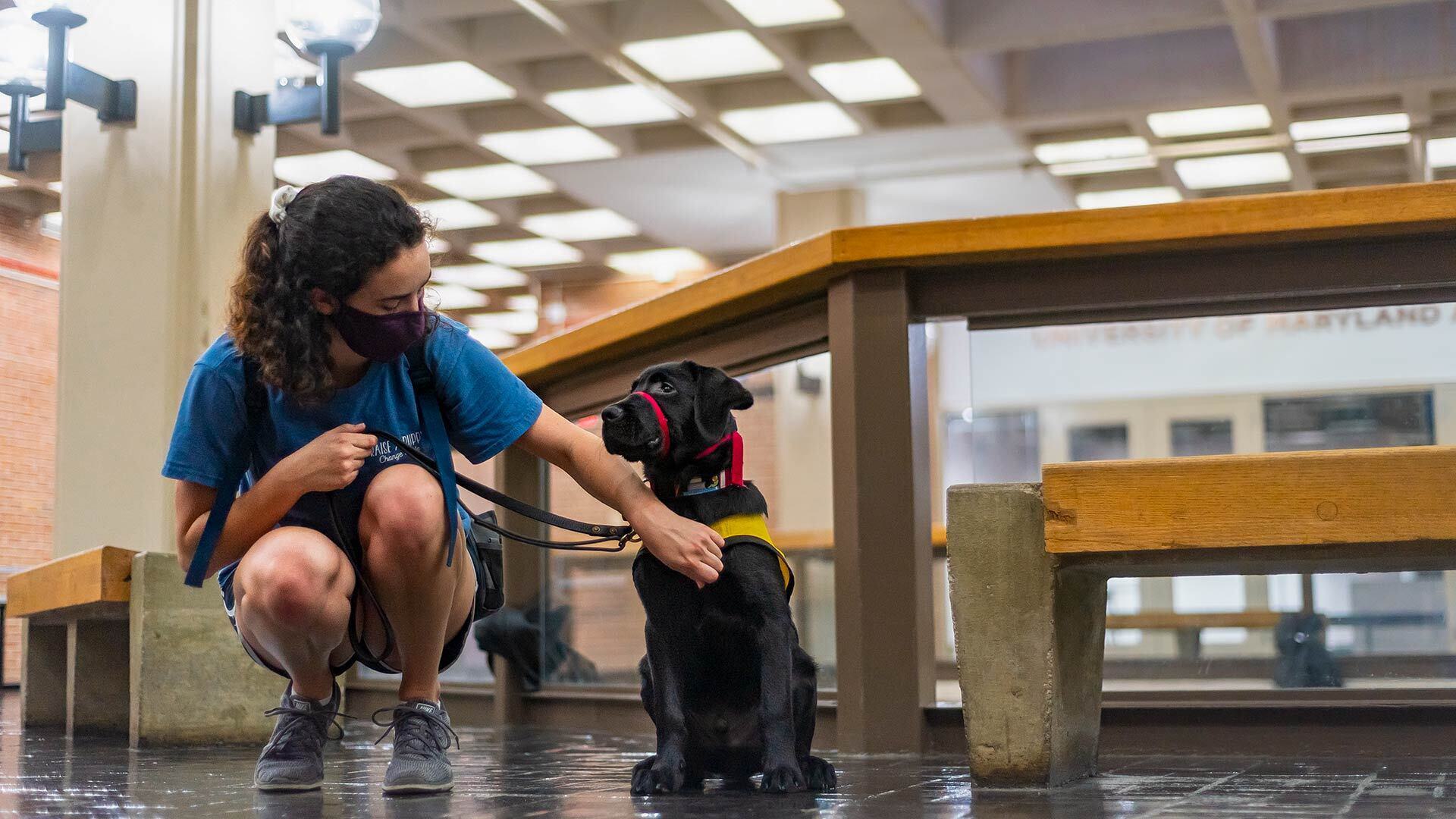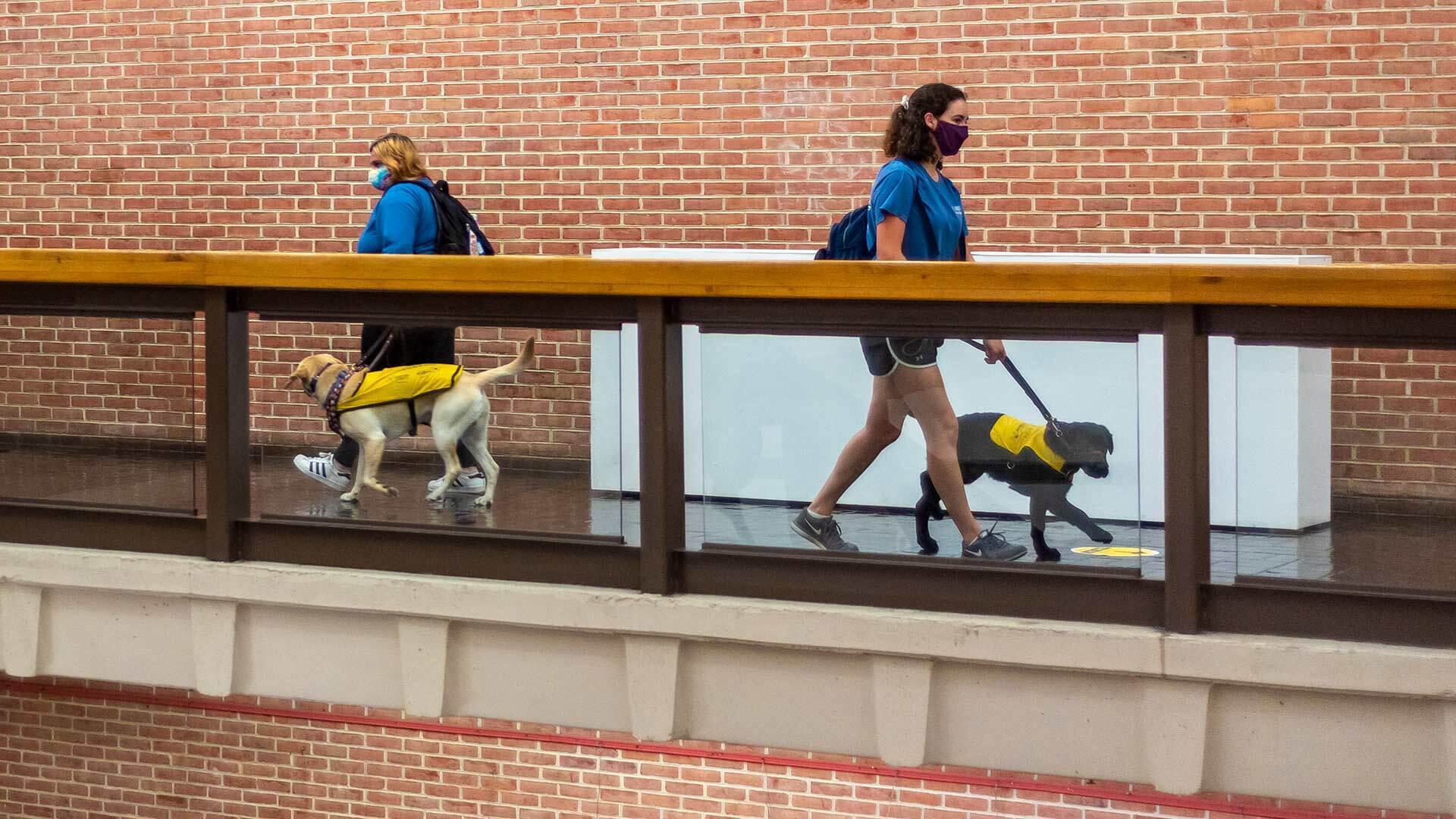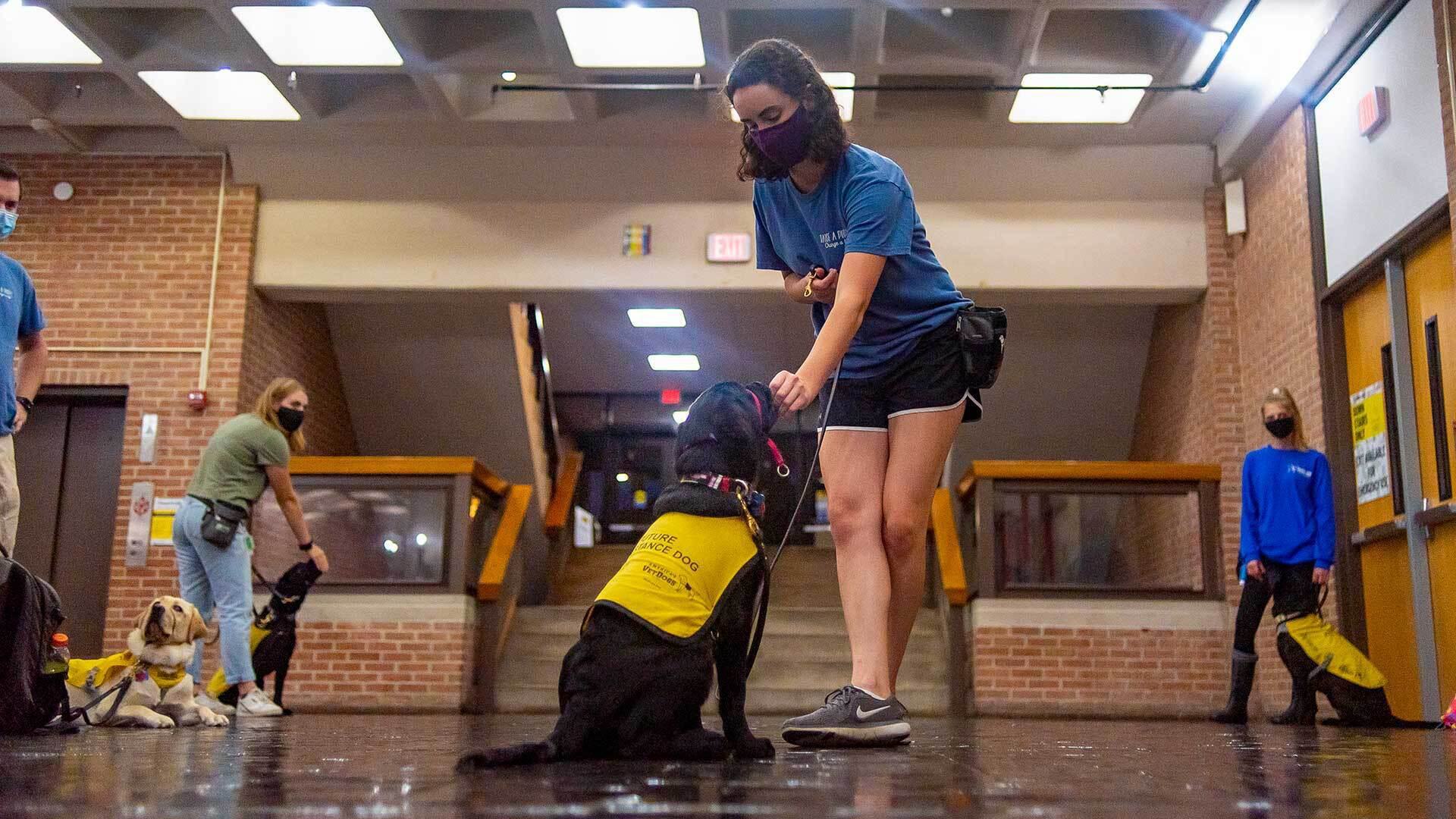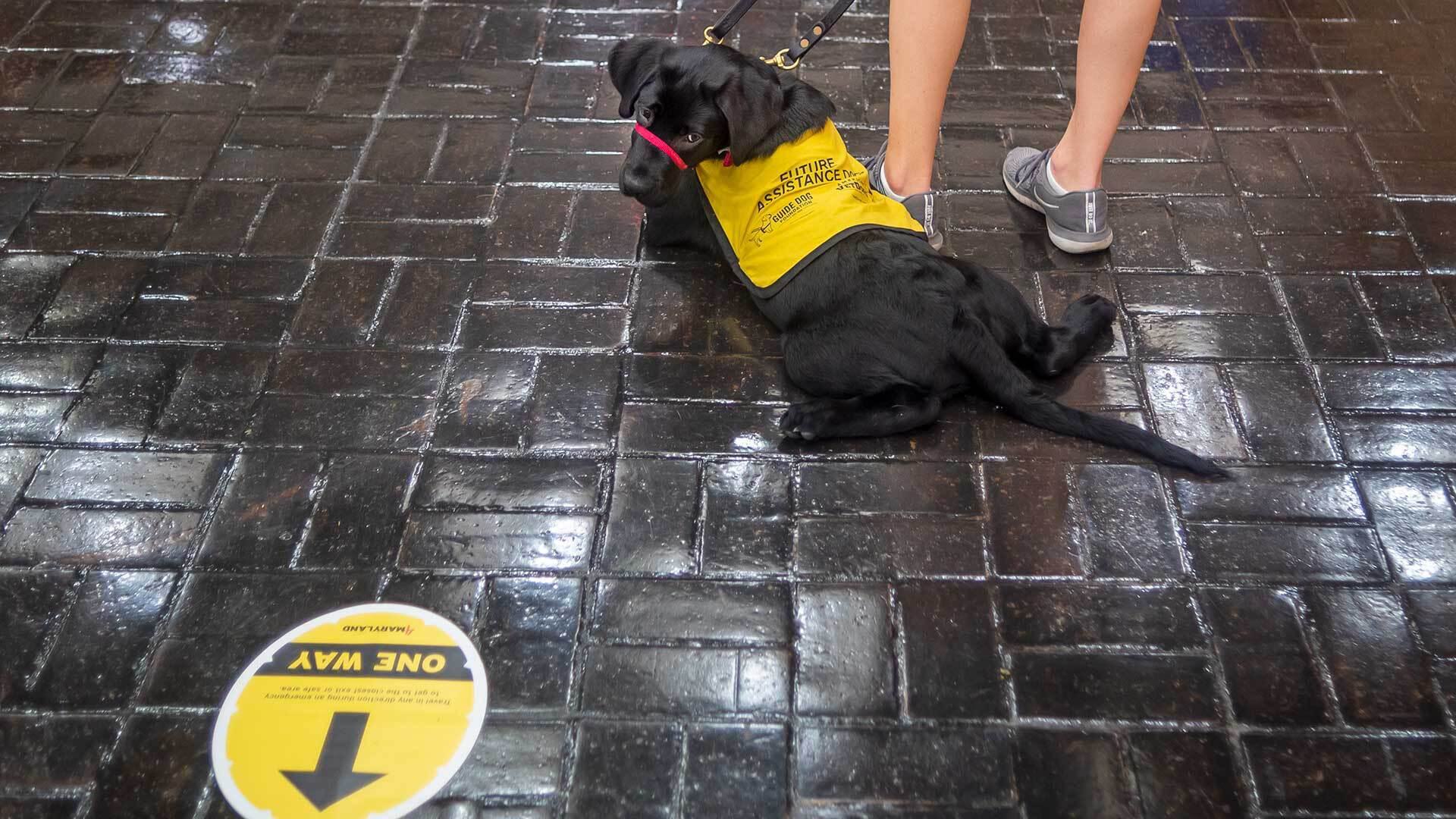- October 07, 2020
- By Annie Krakower
On a Thursday evening in an eerily quiet Art-Sociology Building, one group of students in an auditorium wears masks for safety. Another in the lobby sports yellow service vests on their furry frames.
The latter group—two yellow- and three black-coated Labs—sits at attention, aside from the occasional curious sniff, at a puppy-training session held by Terps Raising Pups, the University of Maryland’s chapter of the Guide Dog Foundation (GDF). The youngest of the canine crew is Keldin, named after McKeldin Library, who at just 4 months old is navigating COVID-adjusted training while working to become a PTSD service dog.
“The foundation has been doing a really good job making sure people are safe, but still getting dogs in and out to people,” said Scott Howarth ’21, a Terps Raising Pups area coordinator who led that night’s class. “There’s still a need for guide dogs.”
For Keldin, a black Lab and golden retriever mix, that process started in mid-July, when he arrived at UMD at a teeny 10 pounds and met co-raisers Katie Briller ’21 and Ellie Brown ‘21. Although Terps Raising Pups has readied dozens of dogs for advanced training over the past few years, Keldin is just the second to be sponsored and named by the group after it raised the necessary $6,000 through donations and sales of puppy-themed swag.
While his predecessor, the aptly named Terp, was trained to be a seeing-eye dog, Keldin is learning skills to mitigate the effects of PTSD on a veteran or first responder through GDF’s sister program, America’s VetDogs. This summer, instead of tagging along with his raisers and getting acclimated at places like the office, the bus or the gym, he started off accompanying Briller at her virtual internship for a residential architecture firm, perfecting the art of sitting (or sleeping) at her feet and keeping her company at her desk. Briller, another area coordinator, is trying to replicate that now during her mostly online schedule.
Besides sitting through humans’ virtual courses, dogs in UMD’s group now also have online options of their own, including introductory and Q&A-style sessions for raisers who are uncomfortable coming to campus. While puppies logging onto Zoom might seem doggone silly, webcams offer the unique opportunity to observe how the pups act when their humans leave the room.
“It’s challenging, of course, to watch a dog do something online and try and show and explain things, but I also think it’s been beneficial,” Howarth said. “I’m interested to see, once things become more normal, if they keep the virtual classes around.”
As campus has gradually reopened, some optional in-person puppy classes have returned. At this evening’s class—where the four-legged students learn to stay calm and confident around noise, stairs and each other—the five pups and people fill this semester’s attendance limit, and all humans need to wear masks, be symptom-free, report their temperatures and stay physically distant. Normally, the events can accommodate up to three or four times as many attendees.
For older dogs, shifting from in-person to online instruction and back again has required adjusting and relearning some behaviors. But Keldin was born into COVID regulations.
“In some ways, the masks have been kind of good because some dogs are a little bit nervous about people with things on their faces, and Keldin’s only known masks,” said Briller. “So he really doesn’t care.”
Despite some scheduling challenges, the smaller coronavirus classes offer other advantages as well, like more individualized time for each pooch to pounce on problem areas. Keldin, for example, is still sensitive to loud noises, so he gets a few tries at ignoring Howarth dropping water bottles and dog bones on the Art-Sociology Building floor.
The noise distracts the youngster, but the experience is helping, especially being around even a few puppy pals. As class ends, he laps up water from a portable dish and flops on the ground with his legs splayed behind him, dog tired after another day’s work.
“For a lot of our dogs, I don’t see the fears that you’d otherwise expect,” Howarth said of the gradual return from quarantine. “Our raisers have been doing a really good job at making sure their dogs are still getting socialized, even with the (new COVID-19) guidelines.”




Topics
Campus & Community